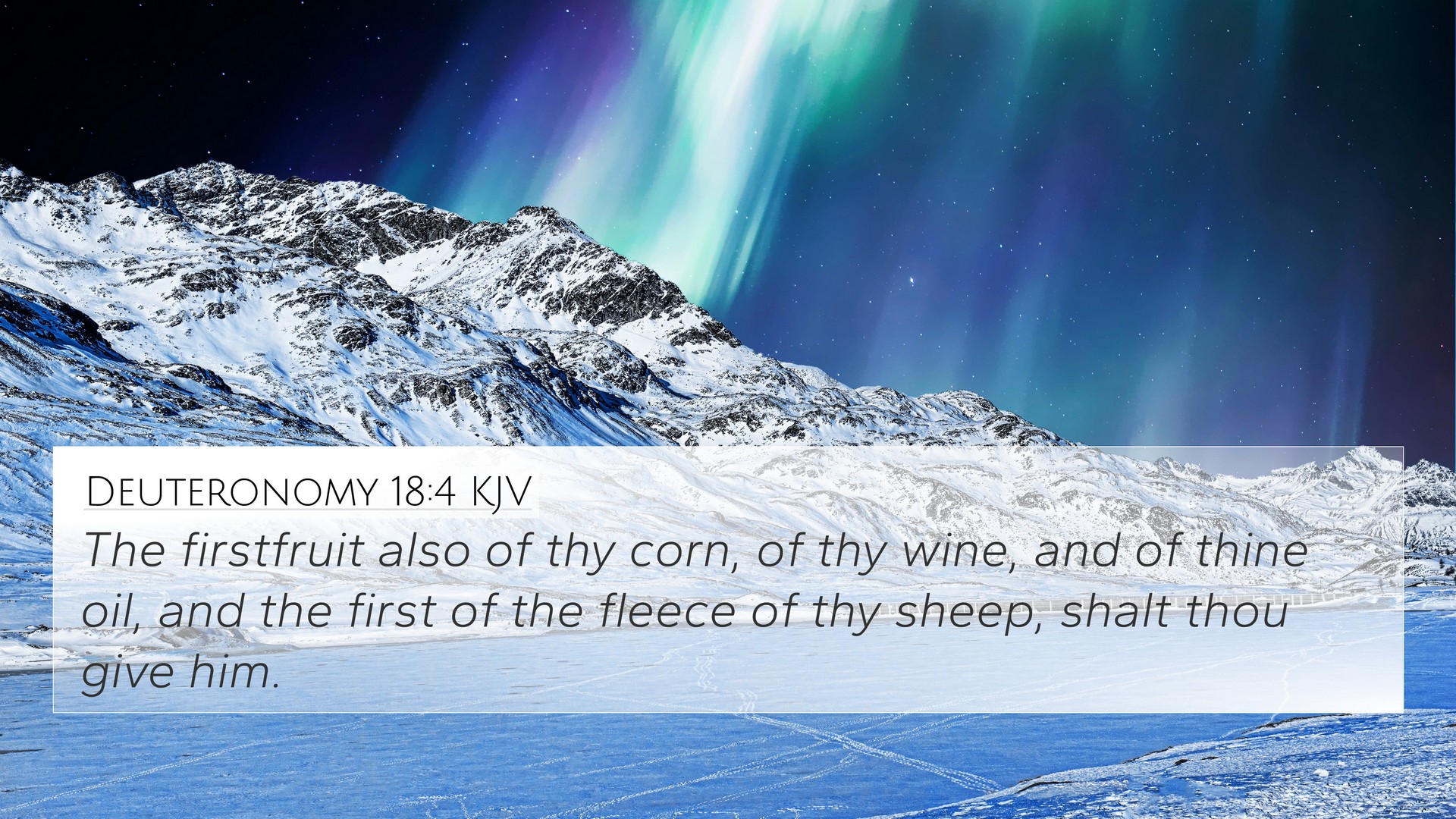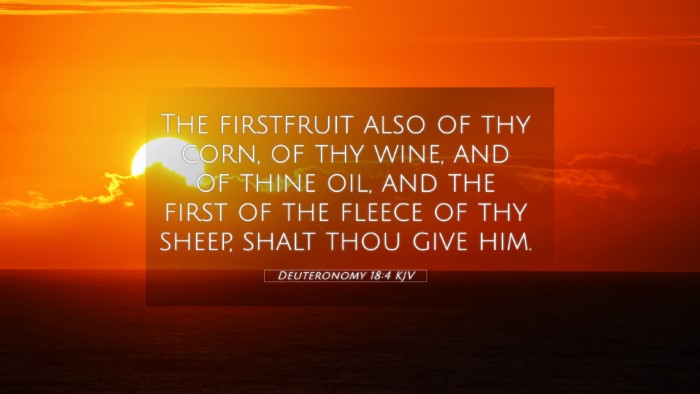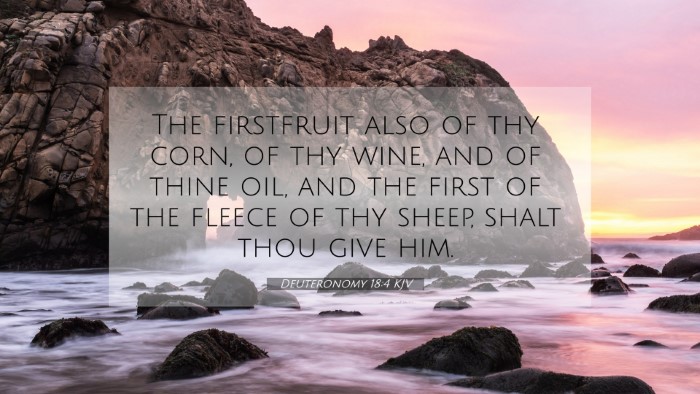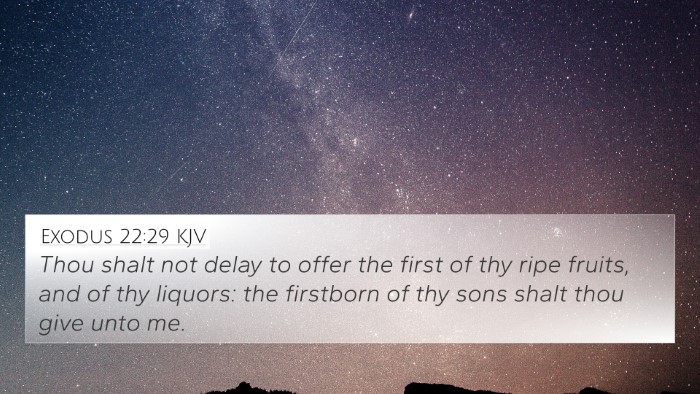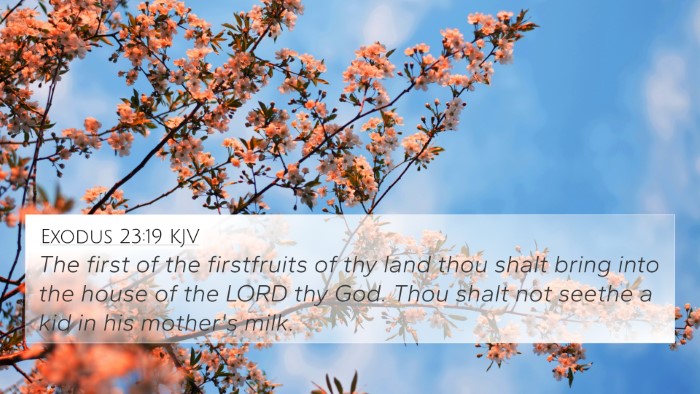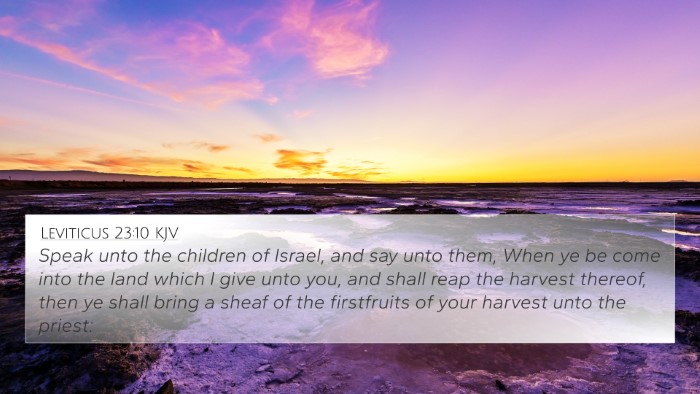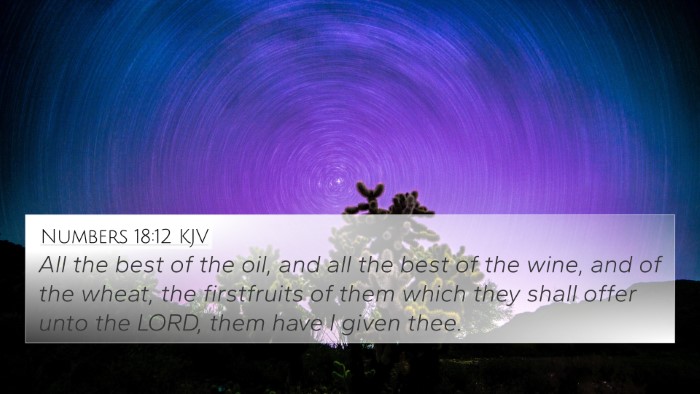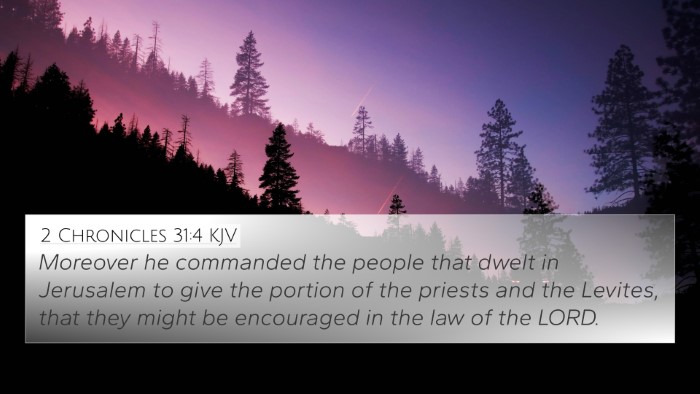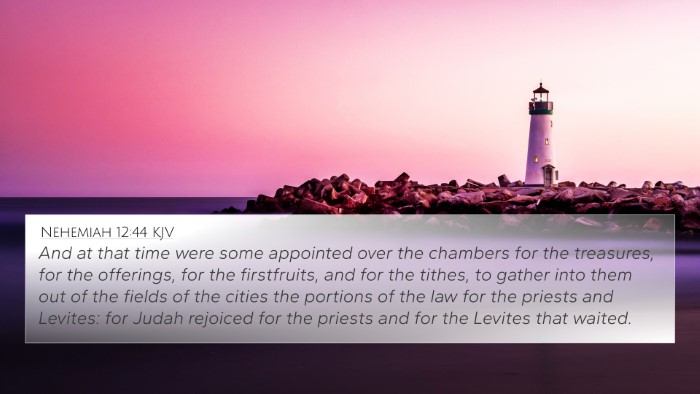Understanding Deuteronomy 18:4
Bible Verse: "You shall give him the first fruits of your corn, of your wine, and of your oil, and the first of the fleece of your sheep." - Deuteronomy 18:4 (ESV)
Summary of Meaning
Deuteronomy 18:4 emphasizes the importance of providing for the Levitical priests, who serve in the house of the Lord, enabling them to fulfill their sacred duties without the distraction of worldly needs. This practice highlights the recognition of their unique role within the community of Israel and the covenant relationship between God and His people.
Commentary Insights
- Matthew Henry: Henry notes the compassion inherent in this command. He emphasizes that the priests, dedicated to God's service, were to be supported by the community. This command reflects the broader biblical principle of honoring those who labor in spiritual matters.
- Albert Barnes: Barnes interprets this instruction as an aspect of the covenant community's responsibility to retrospectively acknowledge the priests' valuable service. Giving the first fruits signifies a renewed commitment to God and His provision.
- Adam Clarke: Clarke points out that the first fruits, both literal and spiritual, were a representation of the best of one's substance being offered to God. This act of giving is both a sign of gratitude and a means of acknowledging God's sovereignty over all provisions.
Bible Cross References
Deuteronomy 18:4 is intricately connected to several other scriptures, illustrating the theme of provision for God's servants:
- Numbers 18:12 - "All the best of the oil and all the best of the wine and of the grain, the first fruits of them which they shall offer unto the Lord, them have I given thee."
- 1 Corinthians 9:14 - "In the same way, the Lord commanded that those who proclaim the gospel should get their living by the gospel."
- Hebrews 7:5 - "And those descendants of Levi, who receive the priestly office, have a commandment in the Law to collect tithes from the people, that is, from their brothers, although these also are descendants of Abraham."
- Malachi 3:10 - "Bring the whole tithe into the storehouse, that there may be food in my house..."
- Luke 10:7 - "And remain in the same house, eating and drinking what they provide, for the laborer deserves his wages..."
- Matthew 10:10 - "No bag for your journey, nor two tunics, nor sandals, and greet no one on the road."
- 1 Timothy 5:17-18 - "Let the elders who rule well be considered worthy of double honor, especially those who labor in preaching and teaching..."
- Exodus 22:29 - "You shall not delay to offer from the fullness of your harvest and from the outflow of your presses..."
- Proverbs 3:9 - "Honor the Lord with your wealth and with the firstfruits of all your produce."
- Acts 4:34-35 - "There was not a needy person among them... they would bring the proceeds of what was sold and lay it at the apostles' feet."
Thematic Connections
This verse serves as a critical link in understanding the broader biblical themes of:
- Support for Ministry: The call to provide for the spiritual leaders reinforces the idea that community members hold a mutual responsibility toward those who guide them spiritually.
- Gratitude and Acknowledgment: Giving the first fruits symbolizes acknowledging God as the ultimate source of provision, fostering a spirit of gratitude among His people.
- Community and Covenant: This command ties directly into the covenant relationship, showcasing how God's people are called to care for one another.
Tools for Bible Cross-Referencing
In studying passages like Deuteronomy 18:4, using tools for cross-referencing can greatly enhance understanding:
- Bible Concordance: A Bible concordance provides an alphabetical listing of words, showing their occurrences in scripture.
- Bible Cross-Reference Guide: These guides help identify verses that share themes or topics, creating a broader contextual understanding.
- Cross-Reference Bible Study: Techniques for linking passages aid in deeper exploration of interconnected biblical themes.
- Comprehensive Bible Cross-Reference Materials: By utilizing detailed reference materials, one can thoroughly examine inter-Biblical dialogues.
Conclusion
Deuteronomy 18:4 is not merely an ancient instruction but a timeless principle that reflects the heart of God toward His ambassadors on earth. The consistent theme of providing for spiritual leaders is not limited to the Old Testament but continues through the New Testament, underlining the vital role of support, gratitude, and community within the body of Christ.
